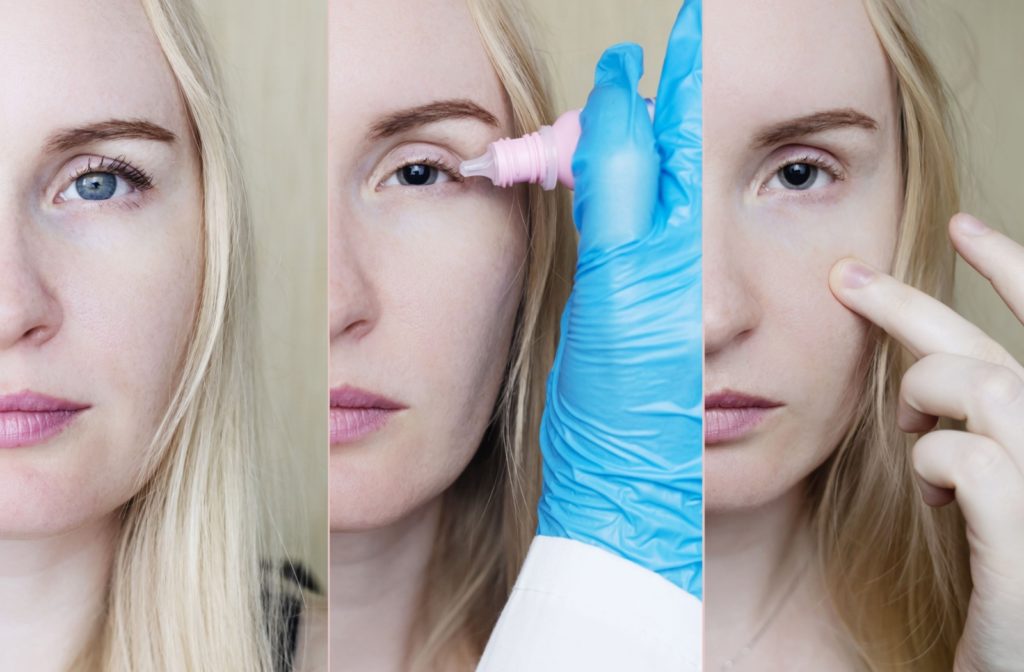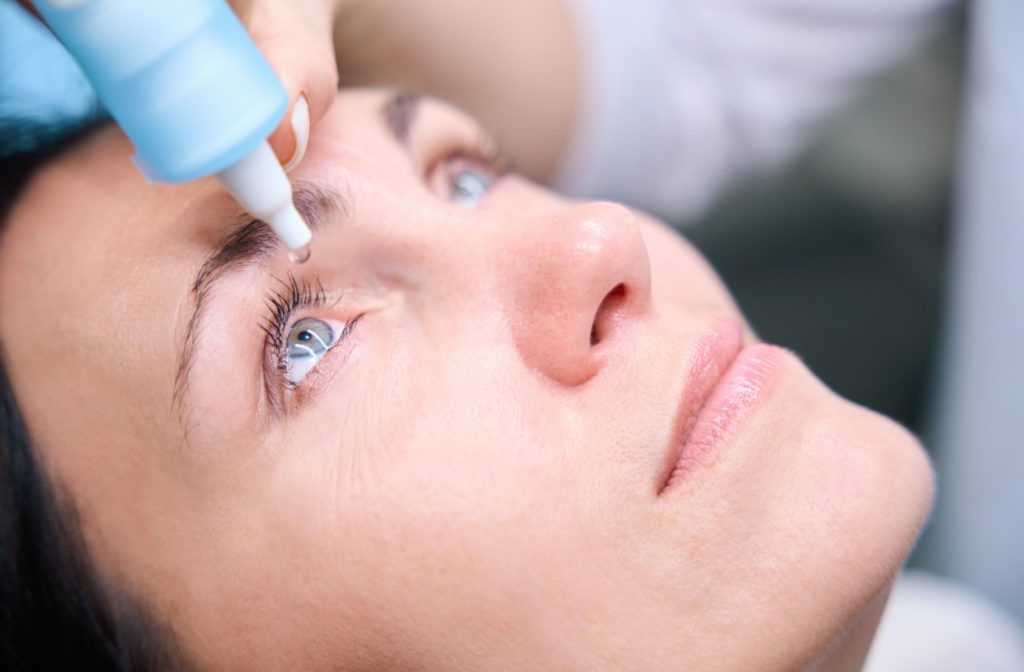When you visit an optometrist for a comprehensive eye exam, you may experience a procedure where your eyes are dilated.
While this might seem like an inconvenience, dilating your eyes is a crucial part of maintaining optimal eye health. It allows optometrists to conduct a thorough examination, making sure they can detect and address potential issues early.
At Total Vision in Hercules, we prioritize your eye health, and understanding why dilation is necessary can help you appreciate its importance.
What Is Eye Dilation?
Eye dilation involves the use of special eye drops to widen your pupils. This temporary enlargement allows optometrists to get a more detailed view of the back of your eye, including the retina, optic nerve, and blood vessels. It takes about 20 to 30 minutes for the drops to take full effect, and the dilation can last several hours.
The Importance of Eye Dilation
Early Detection of Eye Conditions
One of the primary reasons for dilating your eyes is to detect eye conditions that might not be apparent otherwise. Conditions like glaucoma, diabetic retinopathy, macular degeneration, and retinal detachment can develop without noticeable symptoms. By examining the retina and optic nerve in detail, optometrists can identify these conditions in their early stages, when treatment is most effective.
Assessing Overall Eye Health
Dilation also helps in evaluating the overall health of your eyes. It allows the optometrist to see beyond the surface and identify abnormalities or changes that might indicate systematic health issues. Conditions such as hypertension and diabetes can have ocular manifestations, and early detection can lead to better management of these systemic diseases.
Comprehensive View of the Retina
The retina is a crucial part of your vision, and any damage to it can have serious consequences. By dilating your eyes, optometrists can examine the entire retina, including the peripheral areas that are not easily visible without dilation. This comprehensive view is essential for diagnosing retinal tears, holes, or other peripheral retinal conditions that could lead to vision loss if left untreated.
What to Expect During & After Dilation
During the dilation process, you might experience a slight stinging sensation when the drops are applied. As your pupils widen, you will become more sensitive to light, and your near vision may become blurry. It’s advisable to bring sunglasses to your appointment, as they will help mitigate light sensitivity when you step outside.
The effects of dilation typically last between four to six hours, though this can vary depending on individual factors such as eye color and the specific drops used. During this period, it’s best to avoid activities that require sharp vision, such as driving or operating heavy machinery.

Addressing Common Concerns
Is Dilation Safe?
Eye dilation is a safe and routine procedure. The drops used for dilation have been extensively tested and are widely used in eye care. While it’s rare, some patients might experience side effects such as a mild allergic reaction or increased eye pressure. If you have a history of these issues, inform your optometrist before the exam.
Can You Refuse Dilation?
While you can refuse dilation, it’s important to understand the potential consequences. Without dilation, the optometrist’s ability to thoroughly examine your eyes is limited. This could mean missing early signs or serious eye conditions.
If you have concerns about dilation, discuss them with your optometrist. They can explain the benefits and address any apprehensions you may have.
Are There Alternatives to Dilation?
Advancements in eye care technology have led to the development of alternatives to traditional dilation, such as retinal imaging. However, these alternatives are not always a substitute for dilation. Retinal imaging can provide a wide view of the retina but may not capture the same level of detail as a dilated exam.
At Total Vision, we combine the best of both approaches to make the most comprehensive eye care exam happen.
The Role of Dilation in Preventive Eye Exams
Preventive eye care is a cornerstone of maintaining good vision throughout your life. Regular eye exams, including dilation, play a vital role in preventing vision loss and check that any potential issues are caught early. By understanding the importance of dilation, you can take an active role in your eye health and make informed decisions about your care.
At Total Vision, we are committed to providing exceptional eye care and confirming that our patients are well-informed about the procedures we perform. Eye dilation is more than just a routine step in an eye exam, it’s a critical tool in preserving your vision and detecting conditions that could otherwise go unnoticed.
The Takeaway: Dilation as a Key to Optimal Eye Health
Understanding why optometrists dilate your eyes can help you appreciate the significance of this procedure in maintaining your eye health. It enables a thorough examination of the internal structures of your eyes, allowing for the early detection and management of potential eye conditions.
At Total Vision, we believe in empowering our patients with knowledge, seeing to it that you receive the highest standard of care.
To check on your eye health, be sure to make an appointment or contact us to learn more about eye dilation. Remember, regular eye exams, including dilation, are an investment in your vision and overall health



